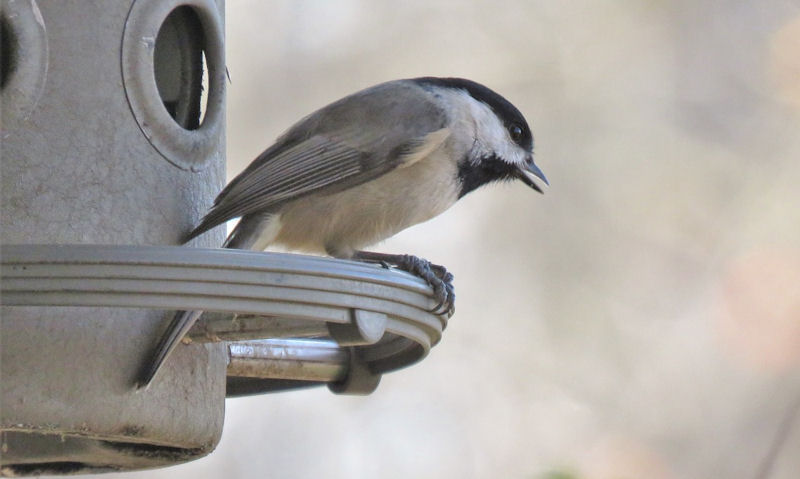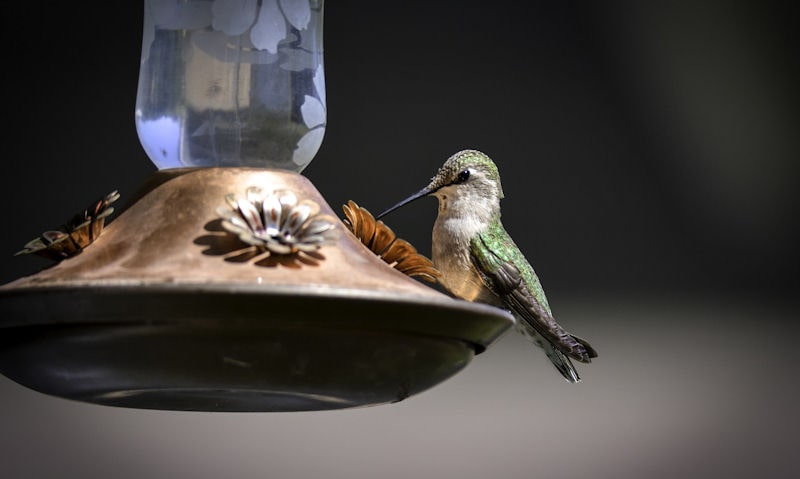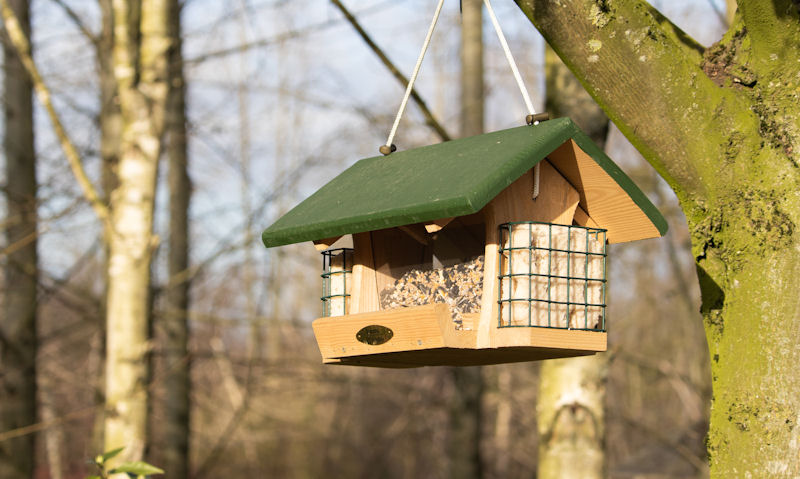How often should you clean bird feeders
Not easy for me to suggest a regular cleaning routine of your bird feeders, as it can depend on many things of which, it will likely depend on your personal circumstances.
How often should you clean bird feeders must be once monthly in fall to winter, as the weather will keep bird feeders at their best. Take warmer months and summertime seriously as feeders are prone to growing bacteria with bird food rotting under the sun - so clean them twice or three times a week in summer.
What is hard to get an handle on first thing is most of you will experience various climates, with super hot summers in one State or normalized summers in others.
With that in mind, I am referring to regular summer months including cold winters that can be a benefit to you all.
As bird feeders can get really messy on the exterior, its the interior we really need to keep an eye on over the course of its use.
How often you clean a bird feeder than will be to avoid bird food rotting so bad, it bleeds into the feeder interior; causing permanent damage as well as staining that is unlikely to be cleaned up.
Clean bird feeders outside of winter or in super cold months as often as you can, by cleaning all bird feeders with a strong dish soap bath; but not before dismantling all bird feeder parts, so they all get special attention.
When you do clean your bird feeders the way you know best, it never hurts to disinfect bird feeders by applying an homemade part bleach or white vinegar cleaning agent.
Whilst my advise mostly applies to cleaning regular bird feeders as often as you can, how often to clean hummingbird feeders can by read up about on my special guide to cleaning for hummers.
Its not all about cleaning bird feeders interior to clean off rotten bird food that can stain mind you.
Remember, bird food can spill on the outside as well as birds dropping or feathers sticking to the feeder exterior, and interior - which can lead you to change your bird feeder cleaning routine to an additional day on any given week.
Take hummingbird feeders for example, unless you clean the sugary water on the outside regularly, you'd never get rid of bees or even ants that will swarm a nectar covered feeder all the time, thus deterring hummingbirds in the process.
Ants can be kept out of nectar when there's a built-in ant moat featured on the Hummingbird or Oriole nectar-filled feeder. Whilst a suspended style ant moat will do just as well to keep ants out of nectar feeders, if indeed there's no moat already built in.
Remember, along with cleaning oriole-filled feeders, its important to clean the ant moats thoroughly while cleaning the individual ant moats separate of the feeder.
Once monthly in colder times
How long it takes for common bird feeder food to rot within its corresponding bird feeder, will tell you the feeder must be cleaned long before that happens.
What is the average time people will clean their bird feeder is once every month, but its certainly possible to see people let the bird food run out dry - before they ever think about cleaning the bird feeder.
Clean your bird feeder once monthly in mild to colder months as it provides wild birds plenty of time to eat it up - yet this time should see the bird food last long enough.
Its vital you always read the bird food packaging instructions, as it can tell you how long to leave the bird food out, while also letting you know its expiry date.
Where you place your bird feeder within your yard can certainly lead you to increase or reduce the frequency of how often to clean bird feeders - but as a rule the colder months can sustain bird food for longer, thus feeders remain cleaner.
When wild bird food remains at its best there will be no decaying bird food leaching onto the bird feeder interior, thus a regular clean of bird feeders is recommended regardless of time of year.
What makes a good bird feeder is if it allows you to find a way to tell if the bird food is in a bad way - because only then would you throw away the bird food to prep the feeders for cleaning.
Twice weekly in summer
OK now the warmer months have arrived in spring with super hot days to come in summer, its time to think seriously about how often should you clean bird feeders.
Let me just say, despite my advise suggesting anywhere between two to three times weekly; you'd still need to change bird food sooner if or when bird food runs dry at this time of year - as an abundance of fledgling arrive at feeders.
In spring through summertime then you must begin to clean all your bird feeders more frequently, as the hot weather is sure to rapidly make these food resources a breeding ground for bacteria and other nasty germs.
Heat is the catalyst for bacteria to germinate thus you must not only clean bird feeders, but its vital you use a vinegar solution with every wash to remove bacteria.
Whilst that mostly applies to regular bird feeders for seed mixes, suet and peanuts, don't forget its essential you clean hummingbird feeders with soap - while quickly following that up with a clean in a part vinegar solution.
Give your bird feeders a proper clean in summer twice a week if you can as to get ahead of stubborn bird food residue clogging up the feeder interior.
Last thing you want to do is go through the fuss of figuring out how to reach hard to remove bird feed in the interior of small compact bird feeders.
Maximize twice weekly routine
Now that you know you must clean your bird feeders at least once a month in winter or up to two or three times in summer, let's try and keep to that routine somewhat.
What you must go for at the bare minimum is cleaning bird feeders twice a week or more, as a less frequent cleaning and maintenance routine will in time cause bird feeders to permanently stain.
With rot or staining setting in you'd have no other choice than to replace your bird feeders with brand new options.
Take Nyjer seed bird feeders for example, the high oil content can lead to the oil congealing, thus the seeds will stick yet the oil will be hard to remove on the feeder interior if not doubt with, within days or weeks earlier.
Similarly, any suet contained within its corresponding cage bird feeder will see a greasy mess, or white suet stains on the inner base or cage wire will be seen.
Hummingbird feeder food is a little different, in that it won't really stain or cause residue, when the biggest losers are the hummers who end up eating toxic homemade nectar.
Hummingbird feeders then must be cleaned out far sooner than a twice weekly routine, as leftover nectar will continue to contaminate fresh nectar every time.
Replace bird food sooner
On the subject of how often should you change bird feeder food then, I'd certainly say this is far more often than cleaning each and every feeder in use.
Suet or seed mixes of all common wild bird food which can last in a feeder for up to a month easily - but again it can depend on the time of year.
While utilizing wild bird food favorites, rather than fill bird feeders to the top - why not use far less to avoid bird food going to waste. Bird food will waste, its just a matter of how much you use according to how many birds frequent your feeders.
In summer months, bird food can last for up to two weeks without changing it for sure, yet this can extend to a month come winter.
However it does get a bit more complicated than that, because what your bird feeder is made of, can extend bird food shelf live or shorten it.
Example of that is, a plastic tube bird feeder isn't too much of an issue to clean as it can easily be wiped off - even though its a condensation prone type feeder.
Similarly, a wire mesh bird feeder for peanuts or suet can sustain this kind of bird food longer, as there's no possibility of condensation.
Meanwhile, what would mostly be bird seeds contained within a made in wood bird feeder - would require more of your attention.
Be it an untreated or painted wooden feeder, you'd have to clean a wooden bird feeder quite often as any kind of bird food risks bleeding into the grain.
To summarize
How often should you clean a bird feeder can depend on time of year, where you hang the feeder - and what time of year it is.
What I am saying is how often bird feeders must be cleaned will depend on your personal circumstances.
What you must aim for in colder months come the fall and into winter, would require you to only clean your feeders once a week. It may seem not enough, but remember bird food can sustain in colder weather, thus bird feeders can stay cleaner for longer.
Come summertime though and that's a whole different ball game. Clean all kinds of bird feeders up to twice weekly in summer - despite the regularity of this cleaning schedule taking up a lot of your private time.
Trust me when I say you won't regret it because an unkempt bird feeder in hotter months can be more trouble that its worth down the road.
Maintain a feeder twice weekly, or if you like with a three times weekly cleaning routine in summer or if in hotter States - to get ahead of any stubborn residue building up on the interior - as to avoid cleaning now would make it near impossible to remove later.
Maximize a twice or three time weekly cleaning routine of your bird feeders, while always keeping your options open to clean feeders more than this if need be.
Whilst you will be cleaning bird feeders twice weekly, with a priority in summer - all you have to do then - is be sure to change out bird feeder food before it rots.
What you can do is change the bird food once or twice on the same day, but use only a little bit of bird food at a time to avoid waste. How else you'd benefit is, if the bird food only climbs a little way up inside the feeder, then there's less to clean.


